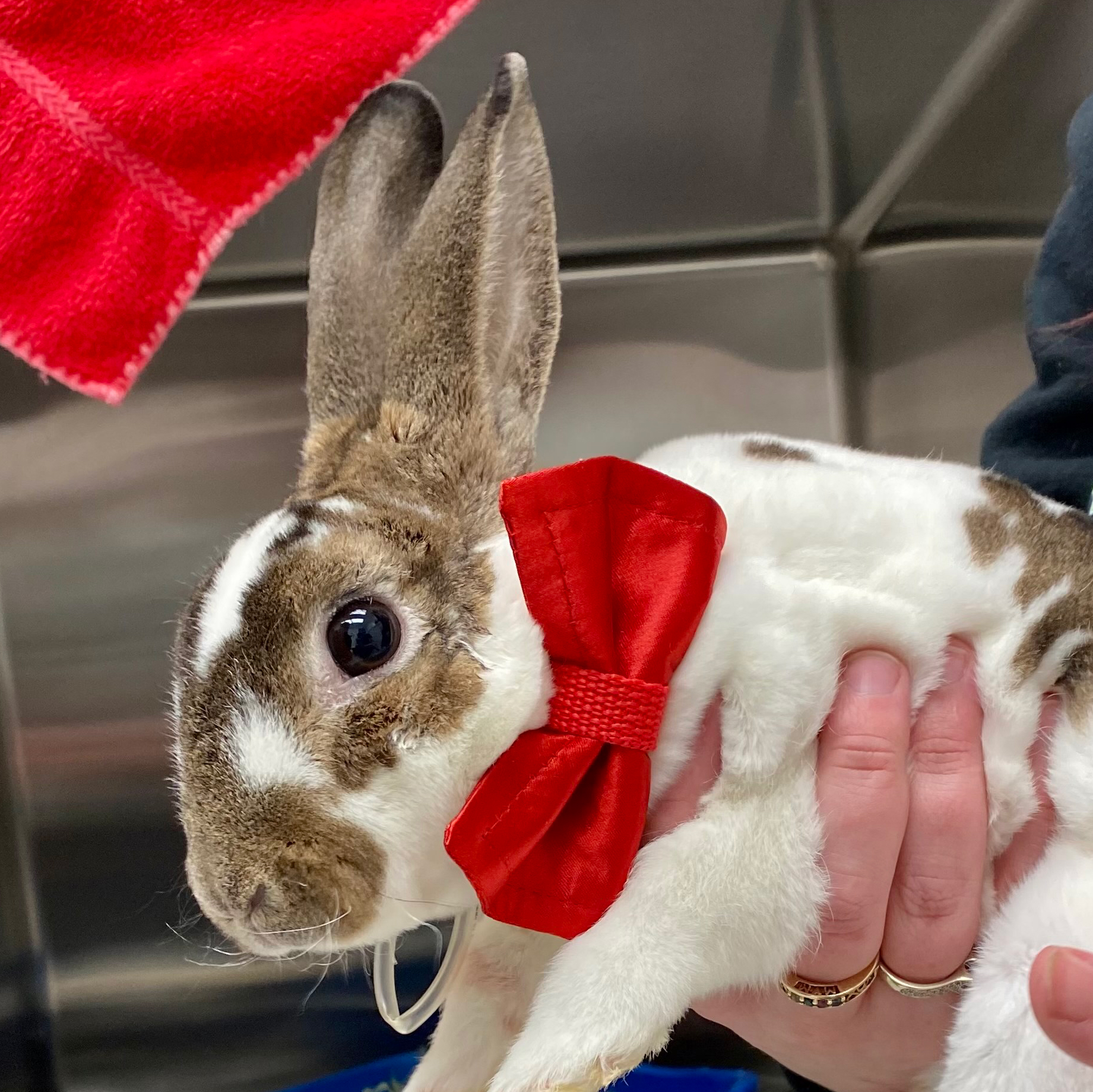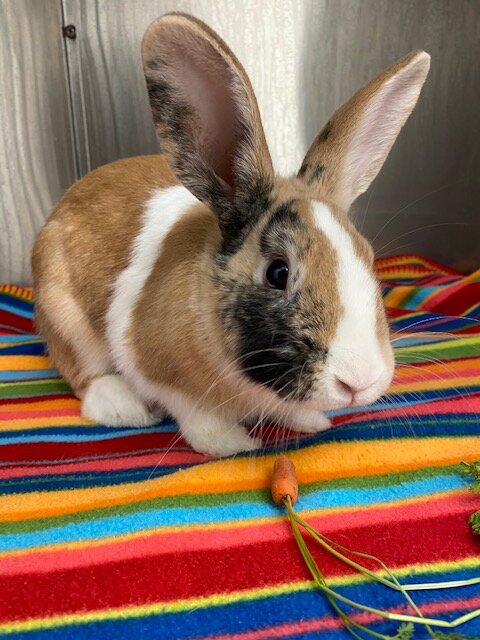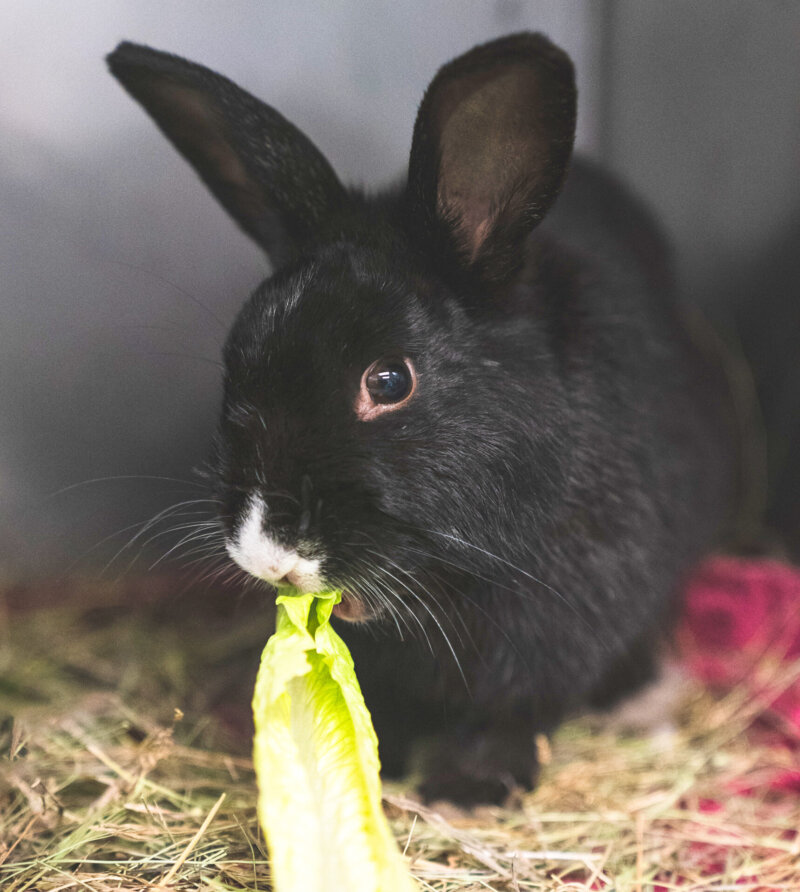10 Facts You Should Know About Rabbits Before Bringing One Home
Written by Ioana Busuioc
Rabbits make a very popular pet in part due to their playful personality and affectionate nature. They’re almost a perfect cross between a cat and a dog, benefiting from high intelligence, loyalty, independence, and silliness.
They’re complex animals who make amazing companions, but unfortunately, according to PETA, they are the third most abandoned animal in shelters. This could likely be in part due to the fact they often make the perfect “Easter gift”, but without proper consideration of their needs, temperament, and attitude, it unfortunately leads to their abandonment.
Here are some of the top things to consider before committing to getting a rabbit for a pet:
1. They often require special vets as they are still considered an exotic pet and they do have special health concerns, such as loss of balance or head tilt, myxomatosis, rabbit viral haemorrhagic disease, flystrike, ear mites, and potential breathing difficulties. It is also common for female rabbits to get uterine cancer and male and female rabbits alike can become territorial and aggressive, so committing to a rabbit also means committing to their health by spaying or neutering them.

2. Rabbits are indoor pets! Being a relatively small animal, there are many outdoor dangers for them. They make easy prey for predators, especially in areas around the city where there may be coyotes, and they can also ingest plants or grass that could’ve been sprayed with toxic pesticides that could prove fatal to them.
3. As I mentioned earlier, they are not an easy “Easter gift”, nor are they a good starter pet, especially for a younger child, given the fact that they are not low-maintenance pets. Rabbits can live up to 10 years, and often times longer with proper care, and they are ultimately more of a commitment than dogs or cats. If their social needs and mental stimulation is lacking, they can actually turn destructive. That being said, even the most well-mannered rabbit can have a propensity for chewing wires or furniture if left unsupervised, so it is crucial to be responsible for their supervision as well as for rabbit-proofing your home. My House Rabbit has an excellent article on how to bunny proof your house.
4. Their nails and teeth never stop growing, and therefore they need a trim roughly every 6 weeks as well as the proper diet and toys to be able to chew on to keep their teeth in a healthy condition and at a proper length.

5. They require a lot of space since they are very active animals! This is important to consider for both outdoor and indoor spaces. Naturally, if your rabbit is indoor, it is easier to let them out of their enclosure to run around if you’ve rabbit-proofed your space. However for an outside enclosure, in addition to making sure there is enough warmth during colder months, there must be enough space for your rabbit to be able to freely hop and run around without feeling constricted.
6. Rabbits are very intelligent animals and much like humans, they can get bored easily. In addition to making the time to engage with them socially, it is imperative to have a wide array of toys to stimulate them mentally and to enrich their lives so that they ultimately are not tempted to make their own fun by chewing through important documents left out. Some suggestions include tunnels or tunnel systems, treat finding games, digging mats, and of course lots of chew toys.
7. Bunnies can get along with cats and dogs, but if you have an existing pet, you have to consider that a rabbit may not react positively right away. It is your responsibility to devote time to properly introduce a rabbit to an existing pet and supervise their interactions. Bonding is something that can take time between any two animals, but it is not a process that should be rushed, as it can ultimately cause a lot of unnecessary stress to both animal or potential injuries.
8. Nutrition is another factor to consider for rabbits, as it is not as simple as a bowl of kibble and a bowl of wet food. Rabbits need access to unlimited fresh hay at all times, as well as high quality, high fiber pellets, fresh fruits and vegetables, and of course fresh water. When considering a health type of pellet, always consider the percentage of fiber — good rabbit pellets should have an 18% fiber content at a minimum.
An excellent resource for what fruits and vegetables are recommended for rabbits can be found on the House Rabbit Society website.

9. Rabbits are not necessarily considered snuggly pets. This is largely due to the fact that they are a prey animal, and therefore it can be quite stressful for them to be picked up. It’s a natural reaction for them to panic once their feet are off the ground and if they are taken by surprise they could panic and hurt you or themselves. Their bones are also quite fragile so it’s important to approach them with patience and gentleness to ultimately gauge their interest in cuddling.
10. Ultimately every rabbit is different, and they all have such amazing and unique personalities! Some rabbits may actually enjoy cuddling, others may prefer quiet time, at the end of the day they are loyal companions that deserve a comfortable and safe home where they can roam, play, eat hay, and be loved. Getting a pet rabbit is not an easy commitment, but the reward of having such a fun, curious, loyal, intelligent, and loving pet is more than worth it.

